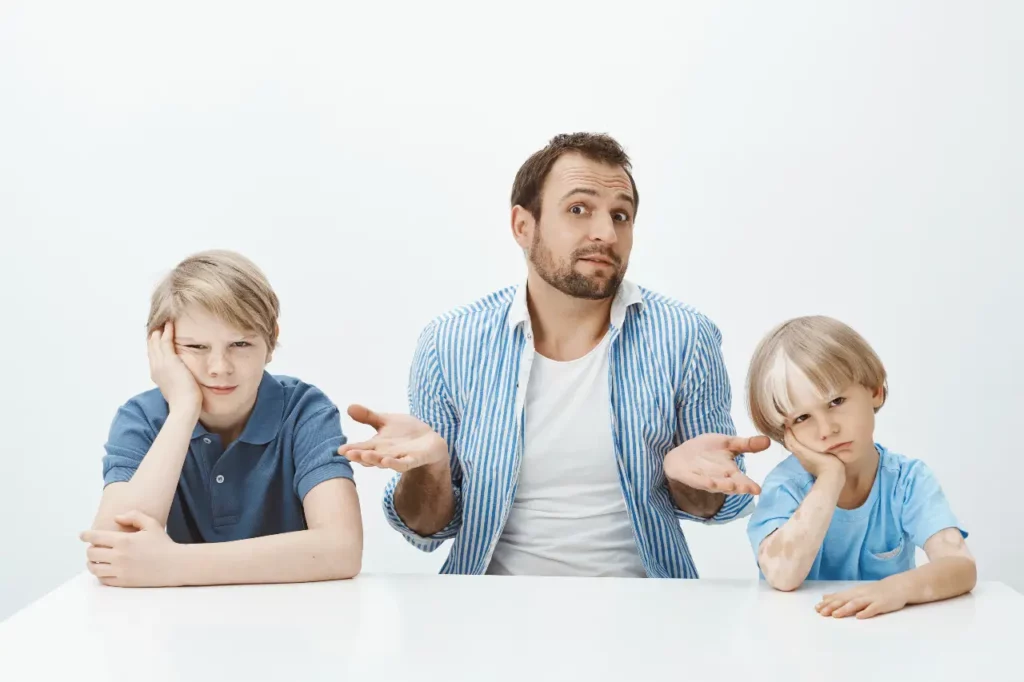Attention Deficit Hyperactivity Disorder (ADHD) is a neurodevelopmental disorder that affects many children and adults worldwide. For parents, understanding and managing ADHD can be a daunting task. Fortunately, there are numerous dream fields personal development books and resources available that shed light on the value of discipline and the intricacies of ADHD. This guide will introduce you to some of the best ADHD books that can help you navigate the challenges of parenting a child with ADHD.
Key Takeaways:
- Understanding ADHD and its impact on children.
- The value of discipline in managing ADHD.
- Importance of personal development for parents.
- Insights from the book of discipline.
- Learning from aaron judge parents and their experiences.
- A brief atomic habits summary and its relevance to ADHD.
1. Understanding ADHD: A Deep Dive
ADHD is not just about hyperactivity or inattention. It’s a complex disorder with various symptoms and challenges. Understanding its nuances is the first step towards effective parenting.
What is ADHD?
ADHD stands for Attention Deficit Hyperactivity Disorder. It’s a neurodevelopmental disorder characterized by persistent patterns of inattention, hyperactivity, and impulsivity. These symptoms can interfere with a child’s daily life, affecting their academic performance, social interactions, and emotional well-being.
2. The Role of Discipline in ADHD Management
Discipline is not about punishment but about teaching and guiding. For children with ADHD, the right kind of discipline can make a world of difference.
The Value of Discipline and HDHD Books
Discipline helps in setting boundaries and providing a structured environment for children with ADHD. It teaches them self-control, responsibility, and the importance of consequences. A well-disciplined environment can reduce ADHD symptoms and improve a child’s overall behavior.
Tips for Effective Discipline
- Be consistent with rules and consequences.
- Use positive reinforcement to encourage good behavior.
- Avoid harsh punishments; instead, opt for time-outs or loss of privileges.
- Communicate clearly and calmly with your child.
3. Personal Development for Parents
Parenting a child with ADHD can be overwhelming. Investing in personal development can equip parents with the skills and knowledge needed to handle the challenges.
Dream Fields Personal Development
Dream fields personal development focuses on helping parents understand their strengths and weaknesses. It provides tools and strategies to improve parenting skills, manage stress, and build a strong bond with their child.
Atomic Habits Summary: Building Good Habits
Building good habits is crucial for managing ADHD. “Atomic Habits” by James Clear offers insights into how tiny changes can lead to remarkable results. The book emphasizes the importance of systems over goals and how habits can shape our lives.
4. Learning from Others: Aaron Judge Parents’ Experience
Aaron Judge, a renowned baseball player, has been open about his ADHD diagnosis. His parents played a pivotal role in his success, and their journey offers valuable lessons for other parents.
Tips from Aaron Judge’s Parents
- Focus on strengths rather than weaknesses.
- Encourage participation in sports or other physical activities.
- Provide a supportive and understanding environment.
5. Common Mistakes and Misconceptions
ADHD is often misunderstood, leading to several misconceptions and mistakes.
Misconceptions about ADHD
- ADHD is just a phase, and children will outgrow it.
- Only hyperactive children have ADHD.
- ADHD is a result of bad parenting.
Common Mistakes Parents Make
- Over-relying on medication without exploring other treatments.
- Not seeking professional help or guidance.
- Comparing their child with others without ADHD.
6. Suggestions for Parents
- Educate yourself about ADHD through books and resources.
- Seek support groups or counseling for guidance.
- Establish a routine and structure at home.
- Focus on positive reinforcement and avoid negative criticism.
For further reading and insights, consider exploring these external resources:
- Google Books Help Center – A vast collection of books on various topics, including ADHD.
- A Heart for All Students – A dedicated platform discussing the best ADHD books for parents.
- Privacy & Terms – Google’s policies and terms for accessing and using their resources.
(Note: This is Part 1 of the article. Part 2 and Part 3 will delve deeper into actionable suggestions, common mistakes, misconceptions, and frequently asked questions.)
Suggestions for Parents Navigating ADHD
Attention Deficit Hyperactivity Disorder (ADHD) can be a challenging condition for both children and their parents. However, with the right strategies and understanding, parents can effectively support their children and help them thrive. Here are some actionable suggestions for parents navigating the challenges of ADHD:
1. Understand the Condition
- Educate Yourself: Before anything else, it’s crucial to understand what ADHD is and what it isn’t. ADHD is not a result of bad parenting or a lack of discipline. It’s a neurodevelopmental disorder that affects attention, impulsivity, and hyperactivity. Learn more about ADHD here.
- Recognize the Symptoms: ADHD can manifest differently in every child. Some might be hyperactive, while others might be inattentive. Recognizing the specific symptoms your child exhibits can help in tailoring strategies to support them.
2. Create a Structured Environment
- Routine is Key: Children with ADHD often thrive in structured environments. Establishing a consistent daily routine can help them know what to expect and reduce anxiety.
- Organized Spaces: Keeping a tidy and organized home can reduce distractions. This is especially important in spaces where homework or other focused activities take place.
3. Positive Reinforcement
- Celebrate Small Wins: Positive reinforcement can be more effective than punishment. Celebrate your child’s achievements, no matter how small.
- Set Clear Expectations: Make sure your child knows what’s expected of them. When they meet these expectations, reward them with praise, a small treat, or extra playtime.
4. Seek Professional Help
- Therapy: Behavioral therapy can be beneficial for children with ADHD. It can help them develop coping mechanisms and strategies to deal with their symptoms.
- Medication: Some children benefit from medications that treat ADHD symptoms. Always consult with a pediatrician or psychiatrist about the potential risks and benefits.
5. Stay Active
- Physical Activity: Regular physical activity can help manage symptoms of ADHD. Whether it’s a sport, dancing, or just playing outside, ensure your child gets plenty of physical exercise.
- Mindfulness and Meditation: Techniques like mindfulness and meditation can help children with ADHD improve their attention and reduce impulsivity.
6. Communicate
- Open Dialogue: Keep the lines of communication open with your child. Let them know they can come to you with any concerns or feelings.
- Stay Connected with Teachers: Regularly communicate with your child’s teachers to stay informed about their academic progress and behavior in school.
Common Mistakes or Misconceptions
1. “ADHD isn’t a real condition.”
ADHD is a medically recognized condition with a biological basis. It’s essential to understand that children with ADHD aren’t just being “naughty” or “lazy.”
2. “Only boys have ADHD.”
While ADHD is diagnosed more frequently in boys, girls can and do have ADHD. Their symptoms might manifest differently, often leaning more towards inattentiveness than hyperactivity.
3. “Children with ADHD are just seeking attention.”
The behaviors associated with ADHD are not intentional. They are the result of differences in brain chemistry and function.
4. “Medication is the only solution.”
While medication can be beneficial for some children with ADHD, it’s not the only solution. Behavioral therapy, environmental changes, and other strategies can also be effective.
5. “Children outgrow ADHD.”
Many children with ADHD continue to experience symptoms into adulthood. However, with the right strategies and support, they can lead successful and fulfilling lives.
Incorporating these actionable suggestions and avoiding common misconceptions can significantly assist parents in supporting their children with ADHD. Remember, every child is unique, and what works for one might not work for another. It’s essential to be patient, understanding, and flexible in your approach. For more insights on ADHD and parenting strategies, click here.
Frequently Asked Questions (FAQs) about ADHD and Parenting
What is the connection between “dream fields personal development” and ADHD?
Dream fields personal development is a concept that emphasizes the importance of nurturing one’s aspirations and potential. For children with ADHD, personal development can be a bit more challenging due to their symptoms. However, with the right strategies and understanding, these children can also navigate their dream fields and achieve their full potential. More on personal development and ADHD can be found here.
Why is the “value of discipline” crucial for children with ADHD?
The value of discipline is not about punishment but rather about teaching children the importance of structure, routine, and responsibility. For children with ADHD, discipline provides a framework that can help them manage their symptoms better and thrive in various environments. It’s essential to approach discipline with empathy and understanding, focusing on positive reinforcement. Learn more about discipline and ADHD here.
Is there a specific “book of discipline” recommended for parents of children with ADHD?
While there isn’t a one-size-fits-all “book of discipline” for parents, several resources provide guidance on managing ADHD symptoms with effective discipline strategies. One highly recommended book is “The Explosive Child” by Dr. Ross Greene. This book offers insights into understanding challenging behaviors and how to approach them with compassion. Check out other recommended books here.
Who are “Aaron Judge’s parents,” and what is their connection to ADHD?
Aaron Judge is a renowned baseball player, and while there’s a lot of interest in his parents, there’s no public information suggesting a direct connection between them and ADHD. It’s essential to be cautious about drawing conclusions based on rumors or unverified information. For verified details about Aaron Judge, click here.
Can you provide an “atomic habits summary” in the context of ADHD?
Atomic Habits by James Clear is about the power of small habits and how they can lead to significant changes over time. In the context of ADHD:
Tiny Changes, Remarkable Results: Instead of aiming for massive changes, focus on small, manageable habits that can help manage ADHD symptoms.
Habit Stacking: Link a new habit (like a five-minute meditation) to an existing routine (like brushing teeth in the morning).
Immediate Feedback: Use positive reinforcement immediately after a desired behavior to make habits stick.
Environment Matters: Design the environment to reduce distractions and triggers, making it easier for children with ADHD to focus. Incorporating the principles from “Atomic Habits” can be beneficial for parents and children dealing with ADHD. More on habits and ADHD can be found here.
How can parents ensure they’re following E-A-T (Expertise, Authoritativeness, Trustworthiness) guidelines when seeking information on ADHD?
E-A-T is crucial, especially when seeking medical or health-related information. For ADHD:
Expertise: Always refer to content written by professionals in the field, such as pediatricians, psychologists, or ADHD specialists.
Authoritativeness: Look for articles or resources published by reputable organizations or institutions.
Trustworthiness: Ensure the information is up-to-date, cites scientific studies, and doesn’t make unfounded claims. Parents can start their search with trusted organizations like CHADD (Children and Adults with Attention-Deficit/Hyperactivity Disorder) or CDC’s page on ADHD.



